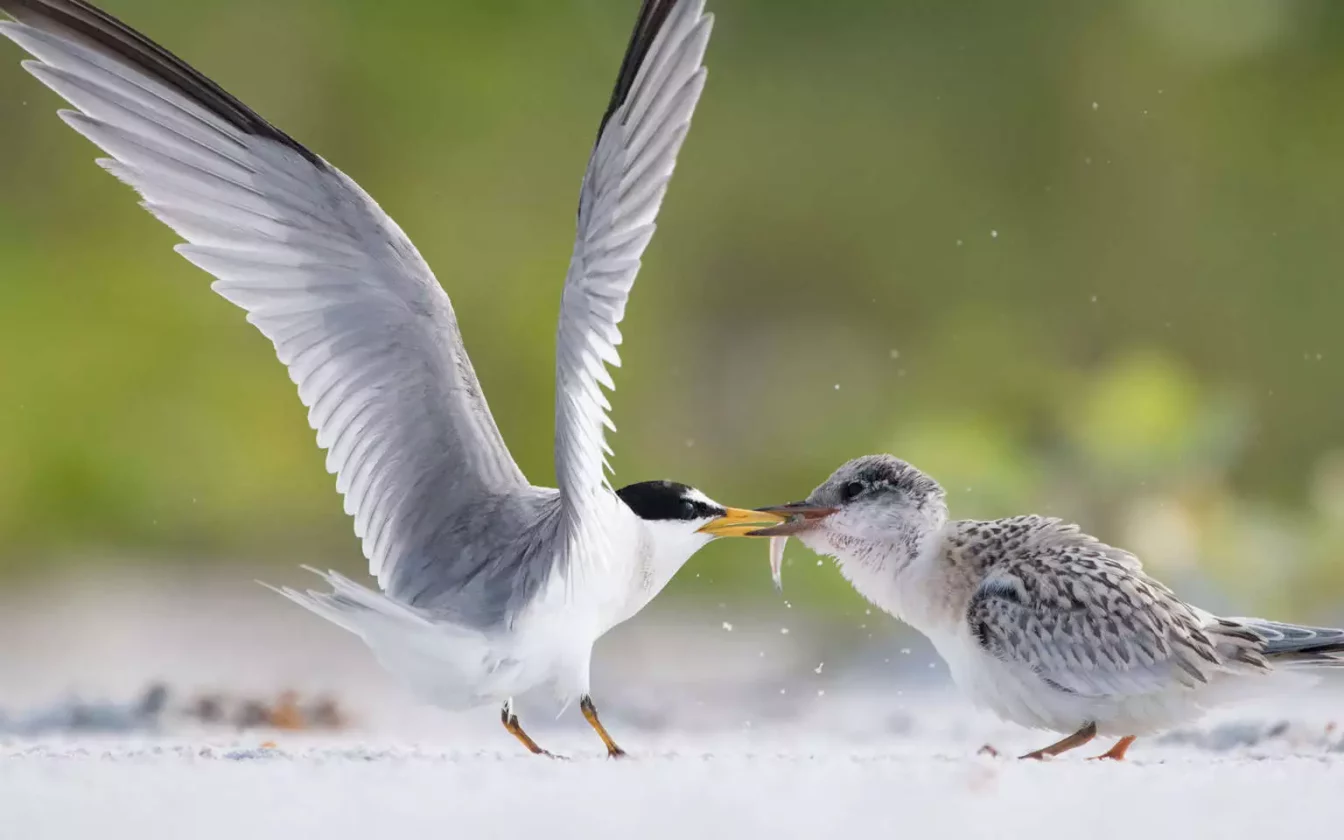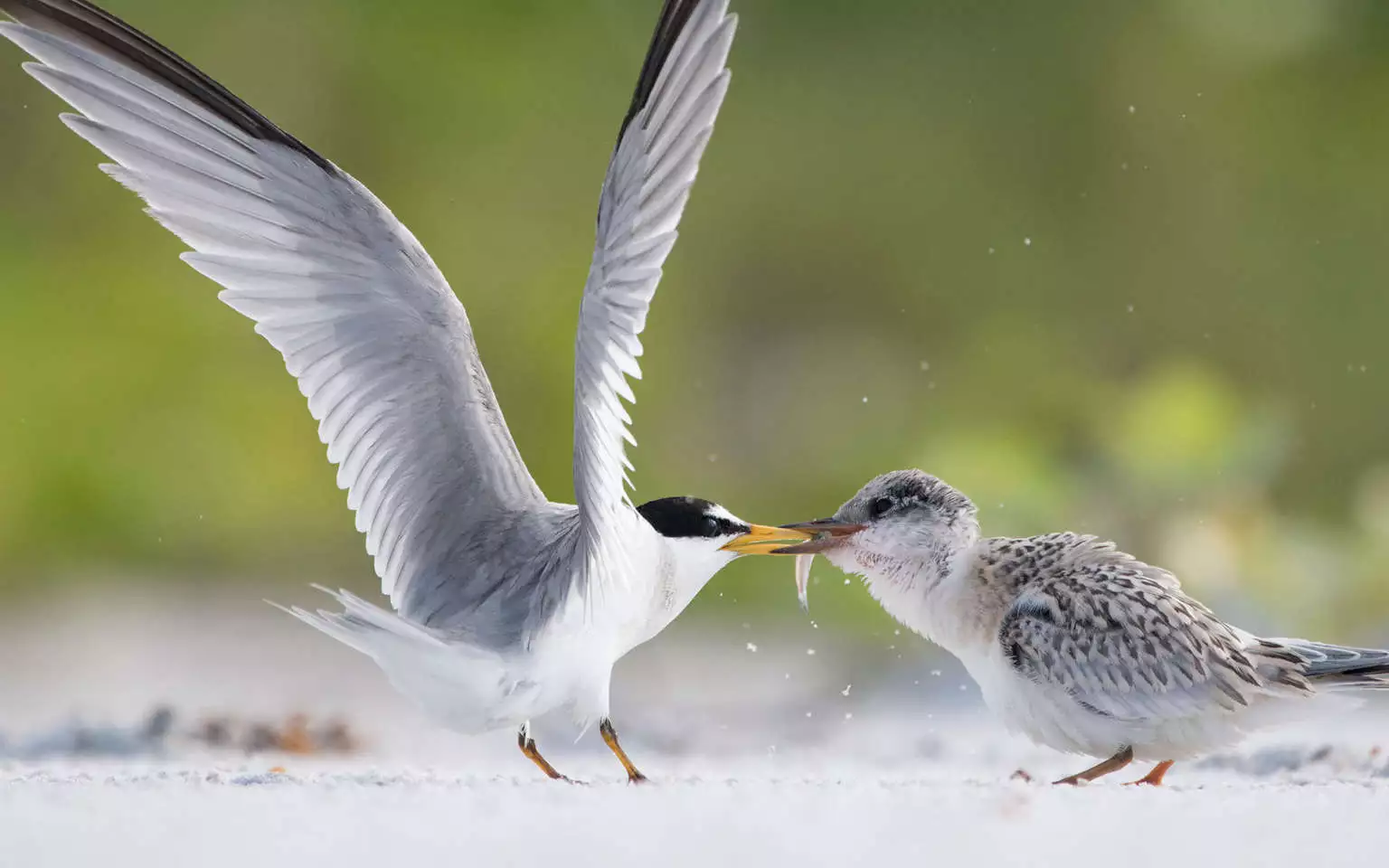Audubon Florida monitors threatened birds who make their homes on rooftops
In springtime in the Florida Panhandle, the Least Terns arrive at their breeding grounds to nest in Walton County. Historically, Least Terns nested in the sandy dunes that border the Gulf of Mexico. Today, beach development and an increase in predators has driven some tern colonies to nest in an unexpected location: rooftops.
Least Terns are smaller than crows but larger than robins, with white/gray bodies, black caps, and yellow bills. They fly over shallow water and dive for fish swimming near the surface. This tern species can live for over 20 years, but are vulnerable to habitat destruction, oil spills, and sea level rise. Florida has named the species to its state-designated threatened list.
Rooftop nests are so common in Florida that Audubon recruits both staff and volunteers to monitor them every summer. Gravel rooftops provide many of the same qualities as beaches: they are flat, open, and have loose gravel in which to build a nest cup and lay their eggs. But unlike many of Florida’s beaches, rooftops are largely free of four-legged predators, making them an attractive habitat for beach-nesting birds to nest and raise their young.
Have you shopped at the Silver Sands outlet mall recently? Several of those buildings host Least Tern nests. Audubon makes sure the chicks remain safe by keeping an eye on the colony and setting up netting around the edge of the roof so the baby birds do not fall off.
Unfortunately, gravel roofs are being replaced across the state and throughout the range of this iconic bird species. Buildings damaged during Hurricane Michael have been replaced with non-gravel alternatives, reducing the habitat these birds need to nest.
Audubon Florida continues to monitor and protect rooftop colonies where they exist, while partnering with local stakeholders to conserve traditional beach habitat as well. Think you’ve spotted a rooftop nesting colony? Contact Rebekah Snyder at rsnyder@audubon.org.






























































